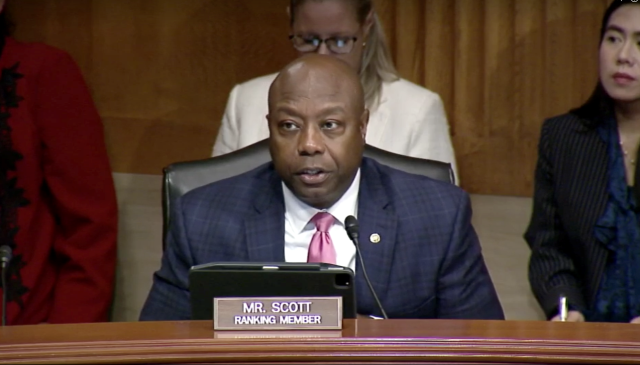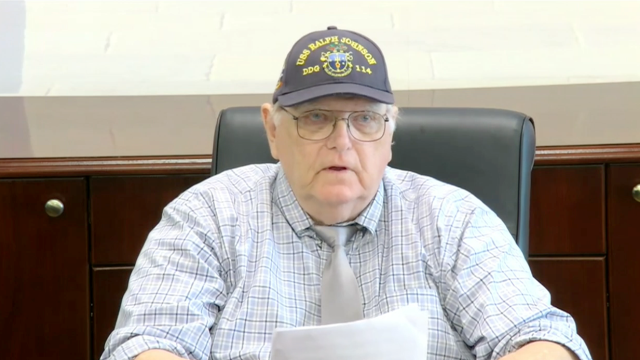Ranking Member Scott, Chairman Casey Hold Hearing on Improving Technology for Seniors, Veterans, and People With Disabilities
WASHINGTON—Today, United States Senate Special Committee on Aging Ranking Member Tim Scott (R-S.C.) and Chairman Bob Casey (D-Pa.) held a hearing titled “Click Here: Accessible Federal Technology for People with Disabilities, Older Americans, and Veterans.” Throughout the hearing, Aging Committee members and witnesses examined web accessibility and telehealth for people with disabilities, seniors, and veterans.

Click to watch Ranking Member Scott’s opening remarks
On how access to telehealth can change lives … “Tony Green is a veteran from Charleston, South Carolina, who served in the Navy for eight years. Following his military career, he had problems assimilating into civilian life and started suffering severe bouts of depression. He went from living in the comfort of his own home to living in a homeless shelter. Determined to change his life, he reached out to the VA and received treatment for his bipolar disorder. The VA and its telehealth services — which he accesses from his phone and laptop to receive care and manage his medication — have made all the difference in the world for Tony. He took advantage of the VA’s comprehensive work-therapy program that led him to a job with the Palmetto Goodwill’s AbilityOne program. He went from a food service worker, to cook, to supervisor. Tony is now an assistant project manager in downtown Charleston. He is also the first homeowner in his family. Telehealth became a God-send for millions of Americans like Tony, especially our seniors during COVID-19. Patients connected with their doctors even when they were isolated. From March of 2020 through February of 2021, more than 28 million Medicare beneficiaries used telehealth services.”
On the importance of continued access to telehealth services … “In 2021, I introduced the Telehealth Modernization Act with Sen. Schatz and a bipartisan group including Senators Collins and Warnock, which makes telehealth flexibilities permanent even after this pandemic is completely done. Without Congressional action, however, these emergency provisions will end and they will end soon, in mid-October of this year. For the tens of millions of Medicare beneficiaries and others who rely on telehealth services, that would be tragic. Federal regulations have not kept up with the technological advancements that we’ve seen in this country. We must keep telehealth available and accessible for all Americans, including our seniors, our military heroes, and disabled individuals, so that they can take care of themselves and meet the needs they have.”
Speaking on the witness panel was Ronald G. Holmquest, a retired naval officer and patient at Ralph H. Johnson VA Health Center.

Click to watch Mr. Holmquest’s testimony
On how telehealth services have improved his healthcare … “With telehealth, the VA can manage my complex chronic conditions very well. The VA assigned me a telehealth case manager. What a pleasure! Mine is an RN with a Bachelor of Science in Nursing who knows her stuff. Her name is Frances Santana. … A function of telehealth is that they watch after you. I send my vitals to my RN daily and if there is a problem you get a call immediately. She has direct contact with docs, fellow RNs, and other providers and will get answers to your problems or education for you on medicine and procedures; she gets problems resolved for you.”
On the need for accessible telehealth services … “Telehealth and technology have made care more personal, not less. I have five different cardiologists who treat me. When I have questions about a medication or why I have been taken off of a medication, I would pick up the phone and call Frances. She checks with the doctor and tells me they prescribed it because other medications have adverse reactions to my existing medications. … Telehealth is critically important to veterans’ care. All veterans should have this opportunity. Telehealth and the VA need to stay for the benefit of all vets. It would be a shame to lose these valuable assets.”
###